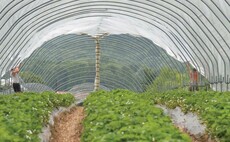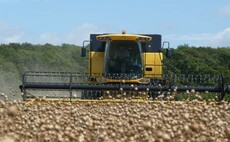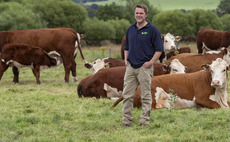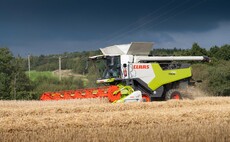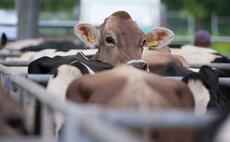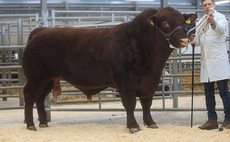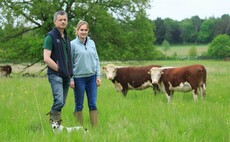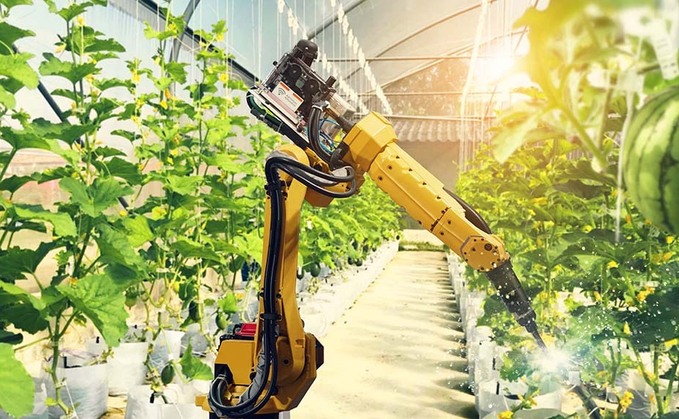
Millions of pounds are being pumped into Britains agritech sector each year, with farmers using increasingly sophisticated technology and innovations that are changing the face of the industry. So why is the publics perception of farming so different? Íæż½ã½ã reports.
Farming might be up there with the most technologically advanced sectors operating in Britains economy today, but the publics perception is that the industry is old fashioned and stuck in the past, a new survey has found.
All manner of innovations, from drones which monitor crops and livestock to driverless tractors and state-of the-art robots which can pick fruit and feed cattle, are becoming a more common sight on farms up and down the country.
But new research commissioned by #FarmingCAN has revealed the British public holds massive misconceptions and a widespread misunderstanding of the industry.
While almost half (43 per cent) say British farmers should do more to utilise technology and modernise farming, 32 per cent said agriculture has not been quick enough to embrace technology.
This is in spite of an overwhelming 68 per cent of the public admitting they had not been on a farm recently to see what technology farmers use.
The UK is currently in the midst of a fourth agricultural revolution, with technology playing a key role in helping the country meet its ambitious climate change targets and #FarmingCAN is working to communicate this to the wider public as part of its major national awareness campaign.
NFU vice-president Tom Bradshaw said: British farming is a dynamic, forward-thinking industry and we have an ambition to grow our food self-sufficiency, which currently sits at just 60 per cent, to provide more nutritious, affordable, climate-friendly British food.
Innovative practices
To do this, many farmers and growers are already adopting new technologies and innovative practices as they look to become more productive while reducing their environmental impact.
With public backing of British farmers at a record high and with people valuing quality, sustainably produced British food, we must demonstrate how progressive we are as an industry and what the sector delivers for the nation, the economy and the environment.
The UK agritech market is currently worth 14.3 billion, with farmers investing 792 million in technology in 2020.
According to a study by Agri-EPI, more than three quarters of farmers (76 per cent) said they had or were already exploring the use of high-tech equipment on their farms.
Industry chiefs believe if this high-tech, innovative side of farming was communicated more widely, it would help attract young people and those from non-farming backgrounds new talent the sector so desperately needs.
Speaking at a recent Oxford Farming Conference Bitesize seminar with the Institute for Agriculture Management (IAgrM), Dr Duncan Robertson, co-founder and chief executive of Dogtooth Technologies, an agri-robotics company based in Cambridge, said the current labour crisis highlighted the crucial role technology would play in the future.
Credible alternative
He said: The soft fruit industry in the UK and across the globe is facing an existential crisis unless we can find a credible alternative to our reliance on seasonal agricultural workers.
We can build robots that have sufficient visual acuity and dexterity to perform delicate tasks, such as picking soft fruit.
We are increasingly able to build machines against the metrics that matter to our customers and growers and can perform comparably closely with humans.
Equipped with a team of robots and a robot operator, we think we will be able to harvest a great many more berries per minute than pickers working alone.
While access to and the cost of the technology may be prohibitive for many farmers at the moment, trials are being carried out on farms across the country to help make the technology a reality for those who want it.
* The survey of more than 2,000 British adults was carried out by Savanta ComRes.









![Farming industry get behind FG's SAVE BRITAIN'S FAMILY FARMS campaign: "[This] campaign will help deliver our message to Government"](https://image.chitra.live/api/v1/wps/877bbe7/0f91ad70-ab9b-4ac9-bc2a-53dfa9e75558/10/BOB-Nigel-Owens-0848-Recovered-323x202.jpg)


